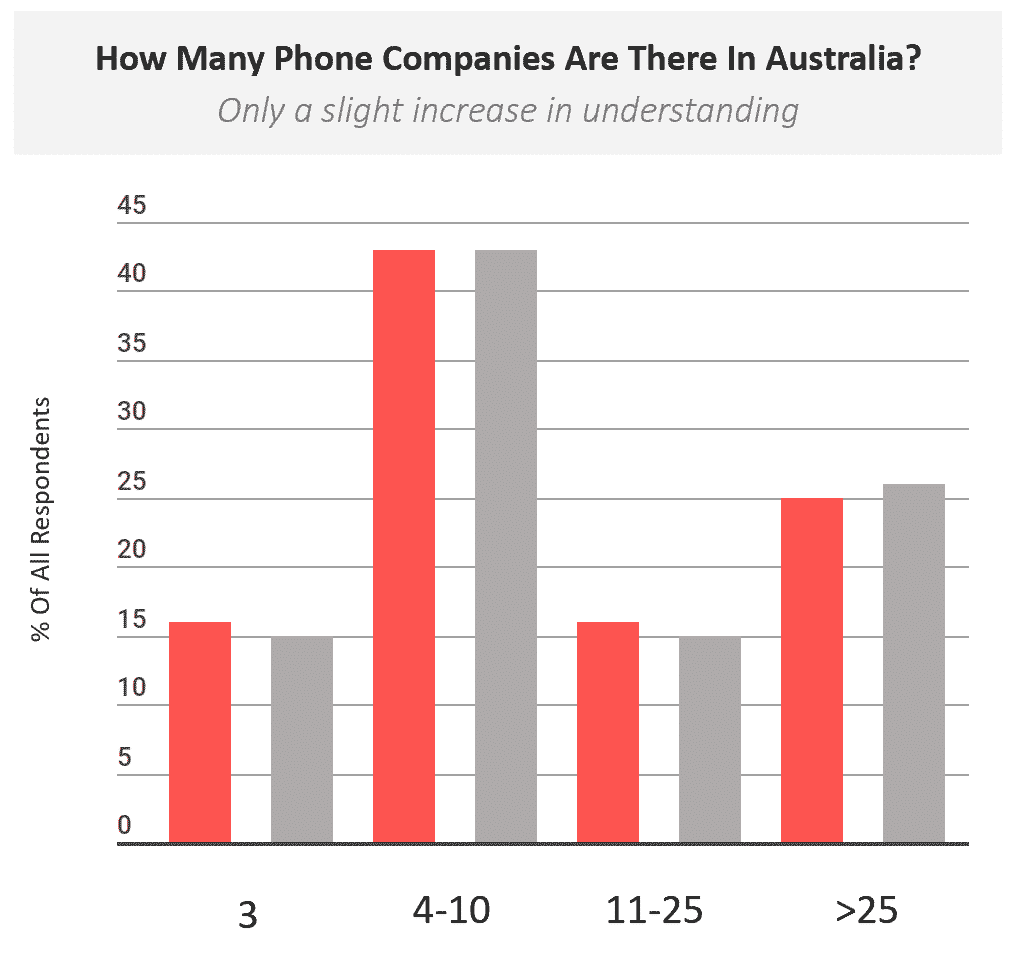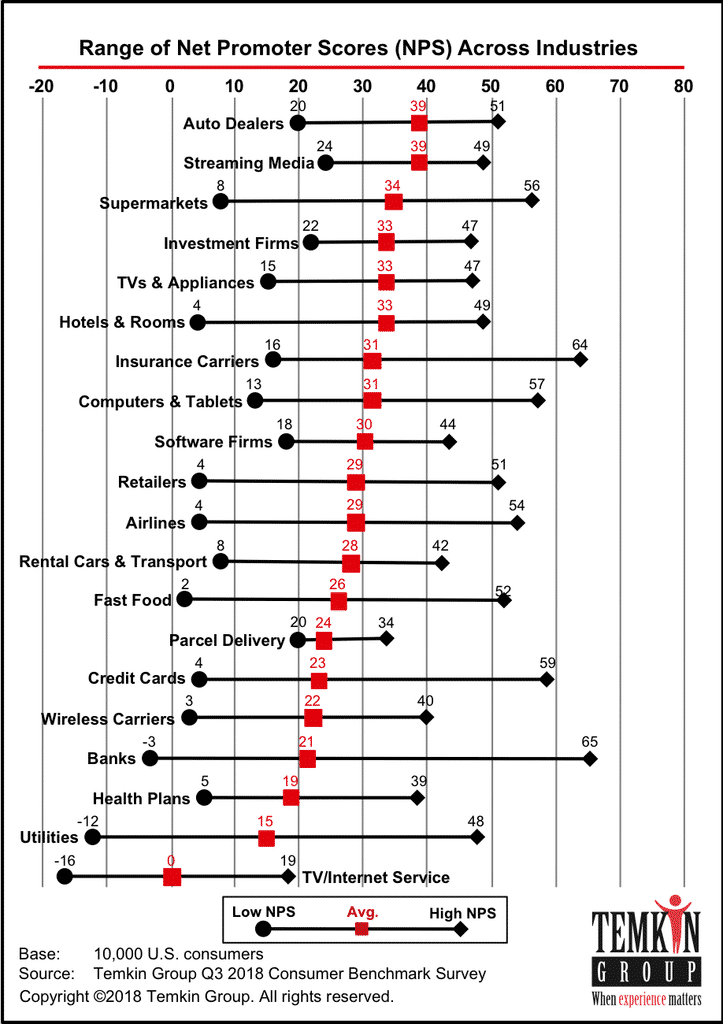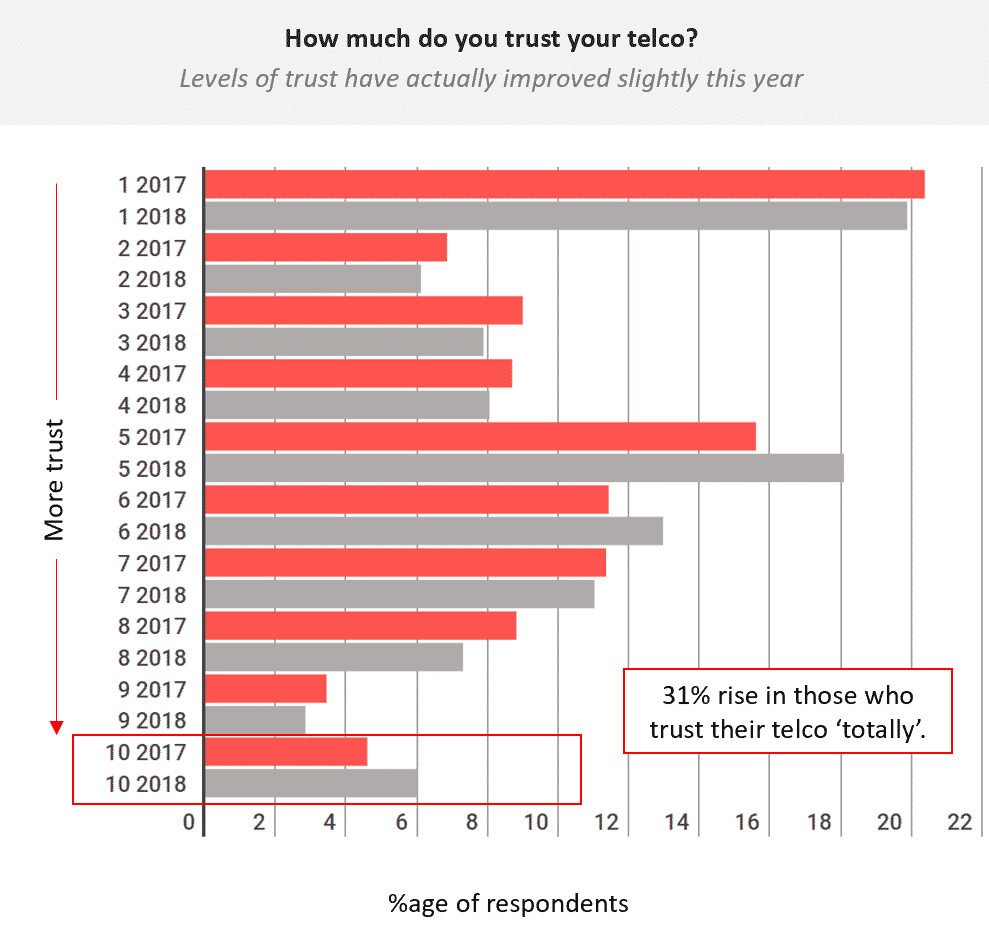Customers continue to rate their mobile carriers low, showing a lack of trust for telcos
Building customer trust is the primary challenge faced by phone companies. As technology evolves and competition increases, customer satisfaction becomes increasingly important because customer expectations evolve as well. As improvements in technology develop, customers seem to want more.
Seeking answers to the question of deteriorating customer trust, IBM (International Business Machines Corporation) surveyed 21,000 consumers in 42 countries, representing 72 percent of the global population and 90 percent of the entire world’s GDB (Gross Domestic Product). The idea was to gain an insight into digital trust and customer relationships on a worldwide scale, and to include both developed and emerging countries to get as clear a picture as possible.
There was also a primary focus on consumer experience with basic network services and on the extent to which telecommunications companies created an emotional connection with their costumers. According to the survey, the telecos failed to live up to expectations.
Similarly, according to the WhatPhone 2017 Mobile Services Report, more than 20% of people surveyed don’t trust their telco “at all”. Without trust, telecommunication companies find it challenging to build a long-term customer relationship, and customers do not mind switching their providers for a cheaper plan.
The following are some of the reasons for the lack of trust.
1. Most costumers are unaware of their options
Perhaps there are many reasons for the lack of trust, and pinpointing them should be a primary focus for mobile carriers. Customer service, of course, plays a major role, but the story does not end there.
According to a WhatPhone survey, a lot of costumers have no idea how many other options they have, and thus fail to explore those options, sticking with the mobile carrier they claim to dislike. In fact, only 25% of those surveyed knew there were over 50 phone companies available to them.
With the competitive telecommunications environment, companies should be eager to satisfy the needs of their costumers. However, the lack of knowledge regarding provider options, along with a wide range of SIM plans & options, keep customers tied to certain providers regardless of the lack of trust. As knowledge of other providers increase, this lack of trust is sure to result in loss of customers. It is ideal, then, for telcos to realize this fact and focus on correcting the causes for the lack of costumer trust.
How many phone companies are there?
2. Problem buffering videos
Today, with the advent of Netflix, Amazon Prime, and other online movie channels, customers are more inclined to stream and download videos online. However, currently, the experience is not great.
In the IBM survey, more than 61% of the customers complained of buffering issues while playing a video on their mobile device. Irrespective of the reasons, customers blame the speed of the data and their telecom operator for the slow buffering.
Thus, if phone companies want to regain customer confidence, focusing on delivering high-speed internet to their customers is a good place to start.
3. Poor customer service interaction
The negative NPS (Net Promoter Score) is concerning for mobile carriers. For a majority of customers, fast response and quick resolution to complaints is the single most important factor for satisfaction. Furthermore, digital customers prefer a fair resolution of their claims, which telecommunications operators fail to provide.
Companies need to excel in the customer service aspect if they want to retain customers and build a loyal, trustworthy subscriber base. For subscribers, a customer-oriented service creates an ideal experience and operators can leverage to this fact by deploying robust knowledge base software. According to a 2016 IBM survey, 16% of customers feel that customer service of their operator is not good enough.
NPS score for the telecom sector is the lowest Source
4. Customers want full control
Due to the increasing penetration of technology, customers hate waiting in long-queues for in-store or on-call support. Furthermore, as per a report by Millennial Research on Customer Service Expectation, 69% of Millennial prefer skipping a customer service agent if they are provided with the right self-service tool. Improving on ways to allow costumers solve problems on their own, with the aid of apps or similar programs, can boost a companies customer service ratings in the eyes of the customer.
Insight into 2019
Due to increasing competition in the market, telcos have started realizing that fair usage schemes build customer trust. Further, other schemes, such as offering free data to customers, also improve customer trust.
Another more recent Whatphone survey, conducted in 2018, showed a 31% increase in the number of people who trusted their telco and rate their telco 10/10. From 2017 to 2018, the weighted average trust rose from 4.7 to 4.8 on a scale of 1 to 10. Furthermore, the number is likely to increase in 2019 due to the introduction of data rollover plans, unlimited plans, data vault, self-service app penetration, and better data streaming of content.
When phone companies offer better pricing and plans, they tend to attract customers and also build an image of trust. The digital customer requires instant gratification, which is achievable through better service and customer focus.
In short
Consumers expect full connectivity, access to many services at an affordable rate, and fast resolutions and customer service in order to trust a telco provider. Mobile carriers must pay close attention to costumer wants in an effort to reverse the trend of decreasing trust. Among all business provider sectors, telecommunications seem t rank the lowest in customer service. Such a trend simply cannot continue, as competition in the space grows and customers eventually learn about the numerous other options available to them.


